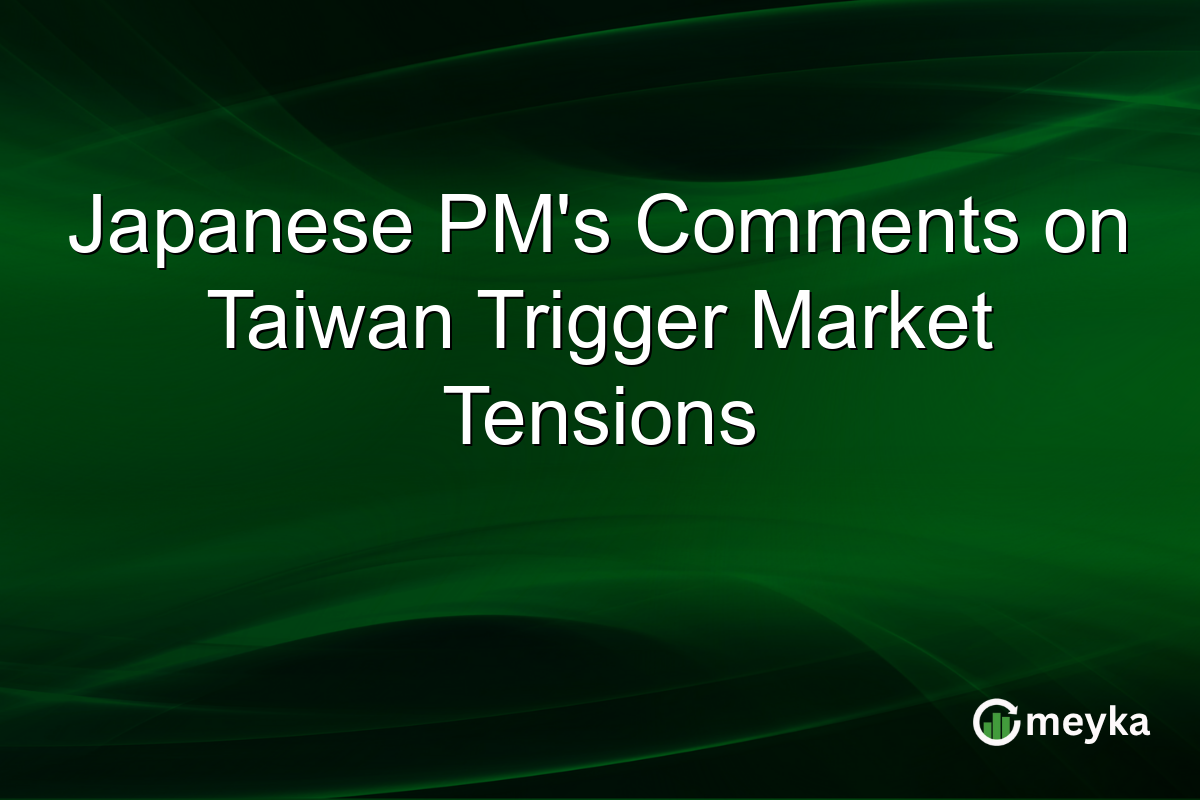Japanese PM’s Comments on Taiwan Trigger Market Tensions
Japan’s Prime Minister, Sanae Takaichi, recently made bold statements regarding Taiwan that have sent ripples through diplomatic and financial realms. By addressing potential military measures in case of a cross-Strait conflict, she has intensified long-standing China-Japan tensions. This move has sparked concerns among global investors, reflecting on regional markets and Japan-Taiwan relations.
Continue Reading on Meyka
This article is available in full on our main platform. Get access to complete analysis, stock insights, and more.
Read Full Article →





